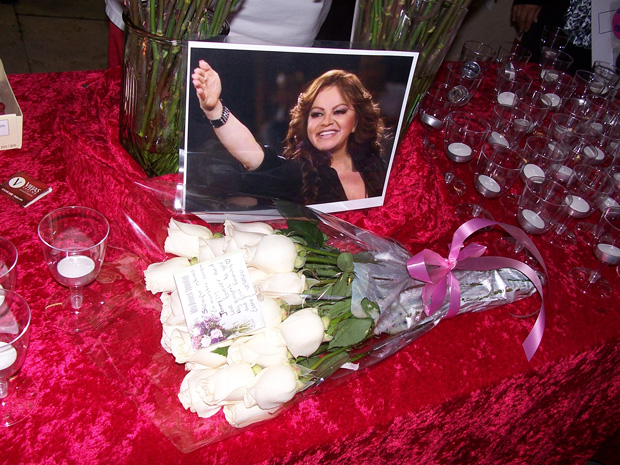
Photo by Matt Cohn
When news reports of Jenni Rivera’s plane crash hit American mainstream media outlets in December 2012, most of the English-speaking world let out a collective, “Who?”
While millions of Mexicans on both sides of the border began to mourn for their lost pop princess, Rivera’s decades-long career was finally revealed to the rest of the world. Though the big papers would never have put it this way, Rivera was the ultimate Latina badass—La Diva de la Banda, the American-born singing superstar who lived a life of adversity only a telenovela writer could conjure, but overcame all the odds to graduate from college, become a successful real estate agent and, eventually, sell 15 million albums of emotionally charged songs that altered forever what it means to be a Latina in Nueva America.
Also, she was from Long Beach, a significance lost on most media outlets as they grappled to report on the life of a woman who had only become newsworthy to them in her death.
So when national papers in the weeks following the plane crash opened up discussions about how the media’s ignorance of Rivera’s popularity and importance highlights their lack of coverage of Hispanics, I couldn’t help but feel like Long Beach was being doubly overlooked.
Despite being the place where her contemporary Mexican-American identity crystallized, the city that birthed not only Rivera, but a handful of other culturally important (and sonically disparate) acts—from Snoop Dogg to Sublime—has remained as it has always been to those outside of city limits: a parenthetical, a blip; at most, a tendril of sprawl lumped in with Los Angeles’ endless gridded streets.
But as those who live here know, Long Beach is so much more than the brick in the small of L.A.’s back. It’s the most ethnically diverse city in the entire country, a statistic that’s bound to come with some cultural perks.
Like many acts from this city, Rivera never shied away from representing her hometown. In a song called “Ovarios,” she belts out, “Los ovarios que me cargo son ovarios de playa larga,” a battle cry for women to harness the power from their female reproductive organs in the same way that men have been told to do from theirs. She loudly and proudly declares that her feminine strength, the strength that decades ago made her the first woman to enter a music genre comprised entirely of men, comes from “Playa Larga”—Long Beach.
And yet, while Rivera’s body was being flown home to the Long Beach Airport and her remains laid to rest at All Souls Cemetery, the opportunity to talk about Rivera’s hometown remained forgotten, the context of such an important site for music production lost amid slapdash discussions of a woman from whom no Wikipedia entry or reprinted Associated Press story could do justice.
***
In the yet-to-be-written book still swirling in my head about Long Beach’s untold importance in popular music, Jenni Rivera gets her own chapter. So does Sublime, Snoop Dogg, WAR, Suburban Rhythm, The Pyramids, T.S.O.L. and Jenni’s dad Pedro Rivera and his record label that still operates out of a storefront on Market St., Cintas Acuario.
But with all her contributions to not just norteño music, but also television, bilingual culture and Latina feminism in general, Jenni was going to be the big one.
I imagined emailing her one day when I got the guts and telling her about how I wrote my thesis on the fact that no one has critically listened to the sounds of Long Beach and how even though I don’t speak fluent Spanish or identify as Mexican, just living in her hometown has given me perspective on her music.
In my dreams, she understood it all and wanted to be a part of the book. She was as gracious and humble as her fans have always said she is. She was glad someone from outside her community was interested in learning more about her and her family’s music. In my dreams, she did not die in a violent plane crash before I could get the ovarios to talk to her. She did not leave a legacy twisted by mainsteam media ignorant to her true significance. And she did not get called “The Mexican Oprah” by major news outlets because that was the only reference point that would make the rest of the world understand the weight of her death.
Jenni was more than the Mexican Oprah or Segundo Selena. Like Sublime, Snoop Dogg, WAR, Avi Buffalo and countless other artists and musicians who found sounds in the diverse streets of this city, she was and will always be Long Beach.
Read more:

